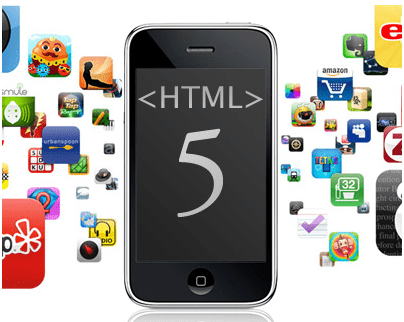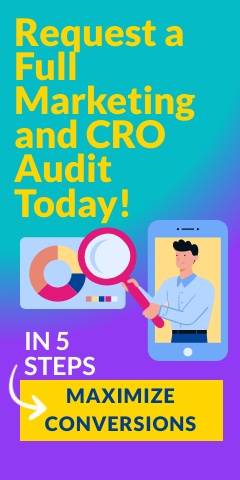 The popularity of smartphones and other “smart” devices has steadily increased since their introduction. An ever-increasing number of consumers are using their smart devices to research and engage with different brands and products. It’s no secret that developing a mobile app is one way for businesses to increase engagement with their audience, improving brand image, increasing value, and generating a higher level of consumer mindshare. However, there is more than one way to develop a mobile app and each method has its own advantages and disadvantages.
The popularity of smartphones and other “smart” devices has steadily increased since their introduction. An ever-increasing number of consumers are using their smart devices to research and engage with different brands and products. It’s no secret that developing a mobile app is one way for businesses to increase engagement with their audience, improving brand image, increasing value, and generating a higher level of consumer mindshare. However, there is more than one way to develop a mobile app and each method has its own advantages and disadvantages.
Terminology: iOS, the operating system for iPhone and iPad, is the software Apple uses to create the devices’ main functionalities as well as to enable custom apps. Android is Google’s mobile operating system, which is used by companies such as Samsung and HTC.
Apps are usually divided into three categories:
- Native Apps
- HTML5 Apps
- Hybrid Apps (a combination of native and HTML5)
Because the iOS and Android platforms are so well designed, they dominate the mobile market. According to StatCounter, iOS has 52.69% market share, while Android has 39.4% as of January 2013.

Native Apps
A native app is built with the software development kit provided by the operating system. Both iOS and Android provide these kits. A native app runs directly on the device, rather than a server, but can still interact with servers.
Advantages of Native Apps:
- Fast and responsive
- Ability to access inner features of the device
- App shortcuts (icons) on the device
- Sound and text notifications
- Provides more data about the user
- Distribution on both the AppStore and Google Play (formerly the Android Market)
While these important advantages, there are also disadvantages to native apps that you must be aware of:
Disadvantages of Native Apps:
- Code must be written separately for each platform
- iOS, Android, BlackBerry etc…
- Code must be modified for each device the platform supports
- IE: iPhone and iPad variances in screens and certain features.
- Platform upgrades are likely to cause the app to malfunction
- When iOS or Android is updated, native apps are vulnerable to unforeseen bugs.
- APIs must be developed in order for the app to interact with servers
- Server communication is important for the exchange of information between users or with your own business through the app interface itself.
Who benefits from native apps
While there are other options for app creation, some business must choose, or simply prefer, native apps. Games are the most common type of native app because they have to be extremely responsive. Other native apps include graphic and / or audio-intense applications like music players.
When creating an app, it is also important to consider the desirability of offline access. Native apps can function without internet access, though some features may be limited. When the device finds an internet connection, the app will synchronize with the server and the user will have access to all of the online features of the app.
Native applications are always a better choice, so long as the business has enough resources and time to invest in the creation process.
 HTML5 Apps
HTML5 Apps
As many of you know, HTML is the visual markup language that was primarily designed for websites. It also works well with JavaScript. Over the years, HTML has become popular and so continues to be updated with new versions that provide even more power and functionality.
HTML5 is the latest version, providing webmasters a way to tap into the benefits of mobile technology. HTML5 apps, at their most basic, are mobile websites. The cost of creating an HTML5 app that works on different mobile devices is very low, even minimal, hence one of its greatest benefits.
Advantages of HTML5
- Cross-platform capability; works on any platform that can display websites
- Runs on web servers and can access databases easily
- More secure – people cannot crack your program’s code
- Updates are immediate and centralized
- Many of the same capabilities as a native app
- Registration, information requesting, and presenting screens etc.
Disadvantages of HTML5
- Less responsive than native apps
- However, the newest mobile processors, which are much faster, minimize this as a disadvantage.
- No access to device’s inner features
- For instance contacts, camera, background sync etc…
- App must be accessed by entering URL address into a browser
- As opposed to tapping an icon
- No push notifications for updates, et al
- IE: Sending messages to users’ devices
While there are certain advantages to HTML5 apps, running the app solely in HTML5 does not provide users with the necessary functionality or the desired experience.
Who benefits from HTML5 apps
An HTML5 app is perfect for those businesses that want to keep users updated during periods of frequent change. As opposed to native apps that require API calls with the server, HTML5 apps can run with fewer or no API calls.
HTML5 apps also benefit from the technology’s seamless synchronization. Because everything is run through the server it is synchronized immediately. Native apps usually have a separate mechanism used for synchronization, which may cause delays.
Hybrid Apps
To take advantage of the benefits of both native and HTML5 apps and negate the disadvantages, it is possible to combine the two into what is known as a hybrid app. A hybrid app is a native app that has HTML5 embedded in it.
Of course, there will always be small changes that must be made to make the app compatible on all platforms, but this combination significantly minimizes the amount of customization necessary.
Advantages of a Hybrid App
- Cross platform capability
- Native functionalities
- Notifications and scheduled runs
- Distribution through both the AppStore and Google Play
Who would benefit from Hybrid apps
Businesses that don’t require the extremely high levels of performance that games require would benefit from a hybrid app due to its faster development process, improved compatibility, easy server communication, and much more.
Do you need a mobile app that allows you to be available for customers when and where they need you? Would you like to keep them updated through their smartphones? We work on both standard and mobile platforms and can help you market yourself on each, allowing you to reach more customers and generate more leads.
To learn more about incorporating mobile platforms into your marketing strategies, contact us today! The initial consultation is free.
Editorial by Lisa Sherman.

 HTML5 Apps
HTML5 Apps


